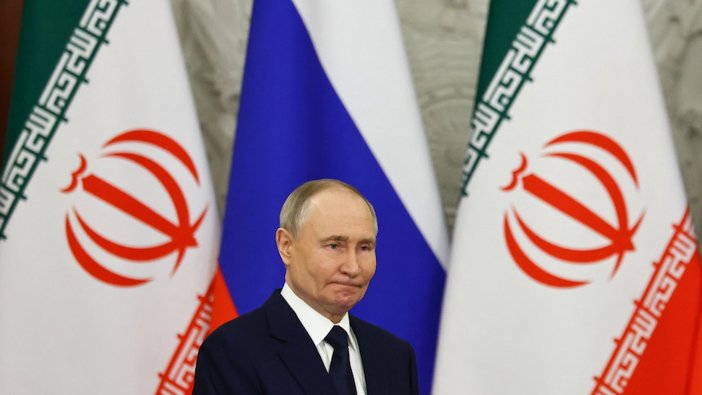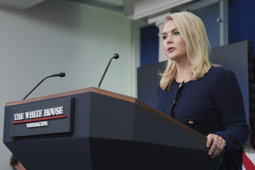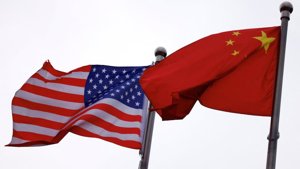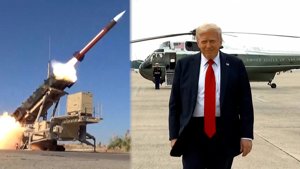
US Strike on Iran Prompts Russian Threats, Global Debate
After US obliterates Iran’s nuclear program, Russia hints at arming Iran and global leaders debate next steps.
Russian Warnings After Decisive US Strikes
International tensions escalated sharply Sunday after the United States executed a high-profile strike against Iran’s key nuclear sites, prompting Russia to threaten direct intervention. Dmitry Medvedev, Russia’s former president and current deputy chair of its Security Council, announced that multiple countries are now prepared to supply Iran with nuclear warheads in the wake of the US attack. Medvedev stated, “The enrichment of nuclear material — and, now we can say it outright, the future production of nuclear weapons — will continue. A number of countries are ready to directly supply Iran with their own nuclear warheads.” While Medvedev did not specify which nations might be involved, Russia has long supported Iran’s nuclear program and played a key role in past nuclear negotiations.
Medvedev’s remarks came after US President Donald Trump ordered airstrikes late Saturday that targeted Iran’s Fordow, Natanz, and Isfahan nuclear facilities. The mission involved more than 125 US aircraft, including B-2 stealth bombers, in what US officials called a precision strike intended to halt Iran’s nuclear ambitions. Trump had signaled his deliberation over the decision for days before the attack.
Israel, US Deny Intent to Widen Conflict
As fears of a wider regional conflict grow, Israeli President Isaac Herzog emphasized that Israel did not pressure the US into war with Iran. “We are not dragging America into a war,” Herzog said, describing Iran’s nuclear program as a “clear and present danger” not only to Israel but to American and global security. “The decision was taken because the Iranian nuclear program was a clear and present danger to the security interests of all the free world,” Herzog stressed, calling the US attack “the right step.” He further encouraged a renewed focus on diplomatic negotiations, but insisted any future talks must be clear and verifiable, referencing Iran’s history of dishonesty in prior negotiations.
US Secretary of State Marco Rubio reiterated the American stance that the United States is “not at war” with Iran and that regime change is not the objective, leaving a diplomatic path forward on the table.
Experts Declare Iran’s Nuclear Program ‘Over’—For Now
Security analysts said the US operation has obliterated Iran’s nuclear program. Jonathan Schanzer, Executive Director of the Foundation for Defense of Democracies, stated, “The nuclear program is no longer.” However, experts caution that to truly end Iran’s nuclear ambitions, Washington and its allies must back up these strikes with ongoing surveillance, diplomatic isolation, and multilateral sanctions to prevent Tehran from rebuilding.
Saturday’s strikes involved six Massive Ordnance Penetrators (MOPs) dropped from B-2 stealth bombers on the Fordow facility, and 30 Tomahawk missiles targeting Natanz and Isfahan. The Pentagon later updated the count to 14 MOPs. According to US officials, Isfahan was “the hardest target” due to its defenses. President Trump celebrated the attack’s success, declaring Iran’s nuclear infrastructure “completely and totally obliterated” and calling the moment one for “peace.”
Yet, experts warn that removing highly enriched uranium and secret advanced centrifuges from Iran remains crucial. Andrea Stricker, a nonproliferation specialist, emphasized that “more work ahead” is needed to ensure Iran’s nuclear weapons capability is eliminated for good.
What Comes Next: Diplomacy or Escalation?
While Russia denounced the US strikes as violations of international law, American defense officials stressed continued collaboration with allies to protect regional forces and assets. Secretary of Defense Pete Hegseth said, “We certainly understand the challenges of allies in the region… We have been respectful and working in collaboration with them as it pertains to basing and sensitivities.”
As global powers weigh the aftermath, Washington faces renewed pressure to combine intelligence, diplomacy, and force to contain Iran’s ambitions. Whether the region moves toward lasting stability or further escalation now depends on the actions of Tehran—and the resolve of the international community.






